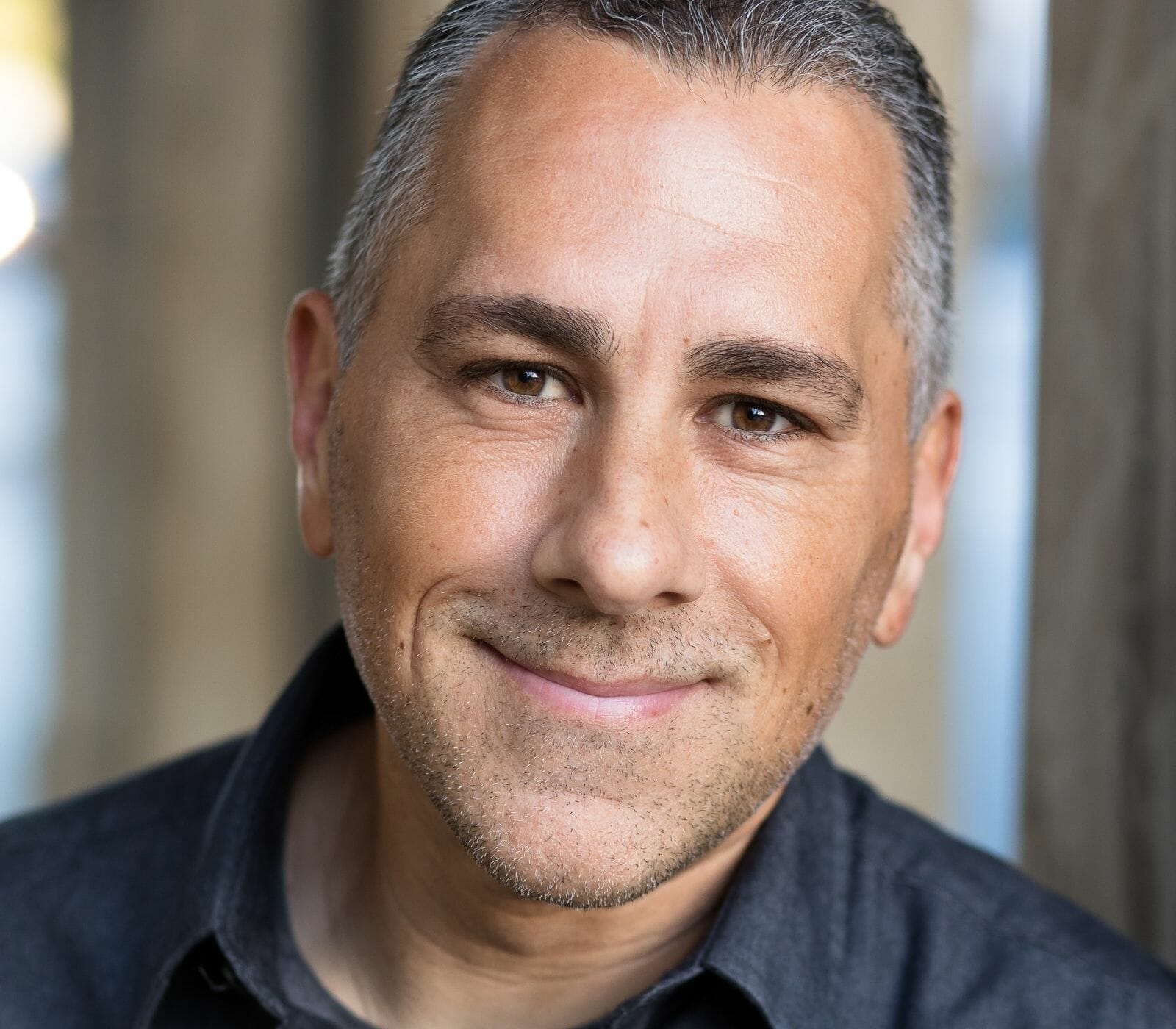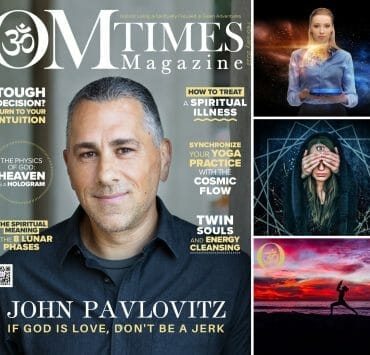John Pavlovitz: If God Is Love, Don’t Be A Jerk

John Pavlovitz: I think we have to be people of stories. We have to remember that whenever we encounter a human being, whether they’re religious or not, whether they share anything that we think is in common with us or not, they are a once in history, never to be repeated story. So if we can honor that and respect the uniqueness of their journey, that they are unprecedented, then I think we can begin to live and have a posture of Love toward them.
I think what religion does at its worst, but also what we do culturally, is we want to have a shorthand for people we want to characterize them. And some rise them quickly because that’s easier than getting to know people. So, I think the golden rule comes when we respect the story in front of us. And don’t assume that we know anything about that story until we ask.
Victor Fuhrman: And you’re touching upon this idea of “Othering.” Why do you think so many folks do that?
John Pavlovitz: I think there are two primary motives. First, I think to push us through life often, and there are grief and fear, which can motivate us to do all sorts of things. Second, I think fear tends to be something that we become almost addicted to that we, that we have many people have a religion that needs an enemy, that needs an adversary. It forces people to walk around in a battle posture.
I always remind myself that I better not go through life with two clenched fists. I need at least one hand open to give and receive and show kindness. I can fight for what I believe in, and we all should, but I can’t constantly live in battle. But, unfortunately, that’s what too many people, I think, do, and it makes it difficult to show empathy to someone if we feel like we compete with them.
Victor Fuhrman: What does that also say about our respective self-worth?
John Pavlovitz: I think it says that we are all people who have a deep need to be loved, and that gets manifested in so many different forms, usually in some comparison sickness. I have run into so many people whose religion has told them a story that someone else’s gain is their loss. It’s such a sad way for people to go through life. So, I think the best of humanity and the best of religion say we are interdependent here. We succeed when the others succeed.
For me, in the Old Testament, the idea of Shalom is not just looking at someone and saying, I, I want the absence of bad for you, but I also want the abundance of good for you. And I want to be an instrument of that.
Victor Fuhrman: I had a wonderful teacher who once asked the class what the great sin of Sodom and Gomora was, which brought a few chuckles to the class. He then explained that the great sin was inhospitality, turning away the stranger who needed food and shelter. Is that a lesson that a good part of humanity needs to remember?
John Pavlovitz: It’s, it’s one that I know that the Christian Church needs to because I run into that, obviously, that argument all the time, people will drop the Sodom and Gomorra story. And then, I will share that verse and let them know that the crime was a callousness of heart.
We are so quick to miss how hardened we’ve become. It’s almost impossible for us to see. And that’s what I constantly do with the writing is trying to get people to stop and pause long enough to say: what is my motive? What do I intend to do today? I may hurt people inadvertently, but I better not be hurting them intentionally and still say I’m a person of a God of Love.
There’s a wonderful word that comes out of certain parts of Africa. The word is Ubuntu, and it literally translates as I am, because we are. It Stresses the importance of embracing community.
That’s beautiful. And it’s just the better path. Victor, I think people who do interfaith work or do work I justice or trying to find a way to bring communities together. It’s just, there’s an exhale that happens when you’re in a place where you’re not striving to be better than someone, and you’re not trying to compare yourself, and you want the best for them. It’s, it’s really just an elevated place to live. I think people resist it. And if, if they only could step into it for a little while, they’d understand why people like you and me advocate for loving others.
Victor Fuhrman: When I attended seminary, my mentor shared that the word sin derived from the Hebrew word hit, meaning an Archer, drawing the bow, releasing the arrow, and missing the target. Does that resonate with you?
John Pavlovitz: It does. And it is a lesson that I have learned over time. That was a shift for me because the idea of sin when I was a younger Christian was loaded with a sense of moral judgment and the threat of damnation. When I could see it as simply missing the mark of failure, a misstep, and I was doing this all in the eyes of a God who loved me, not one who wanted to squash me. It became a very different idea. So, for me, sin became just a chance to start again and try again. And that’s all it is. There’s nothing to fear in that. It’s, it’s simply what that is.
You say that you love the sinner hate the sin is one of the single most “unloving” expressions there has ever been. How does that thought go astray?
I think it’s. It’s one of the ways, one of the examples of us weaponizing religion or the scriptures. Those words were never in the Bible, yet we use them. It’s usually used by someone who is saying. I feel morally superior to you. I’m going to let you know that, but I will let you know. I love you, even though you’re morally inferior to me. The minute you do that, you have declared yourself having won this with God and the other as separate. I think there’s just such a danger in that message because what it says to someone is not only do I disapprove of you, but God does. The existential weight of that is so damaging.
Victor Fuhrman: What is your definition of tomorrow? If any of us left this world, what’s your definition of that next step would be like?
John Pavlovitz: I would hope that it’s a place where the striving is over the striving to be perfect or to earn affection or approval. I think so many of us, myself included, never quite feel like we’re worth it that a sense that imposter syndrome, that streak runs through all of us. So what I imagine the good place would be is a place where you can just stop and breathe, to be, and know that that’s good enough.
Victor Fuhrman: I’ve had this vision that for me, heaven would be a place where everyone that I’ve ever known and ever loved would be there. And that we’d also important take care of each other. And I think that could be on earth. But, unfortunately, I couldn’t do it.
John Pavlovitz: That is the prayer that Jesus taught: let earth reflect heaven, let them be similar. And that’s a different mindset for many people raised in a very orthodox conservative Christianity, which is focused more on the afterlife.
But I embrace a theology. If Jesus Teachings were just about the afterlife, the gospels would’ve been short, it would’ve been just a simple altar call message, and that would’ve been it, but we have all these images of stories from Jesus’ life. I think that shows that the way we live and the relationships we have, they really matter. They are extremely spiritual. That could be what we do. We could have those things that we dream of having one day. We could make those happen here.
Victor Fuhrman: How do we go about Detoxifying Theology?
John Pavlovitz: I think we have to be willing to let go of some of our old stories. The change in me happened when life began to argue with my theology, and I had to ask some hard questions, was I going to allow myself to be informed by new experiences? Or was I going to double down and plant my flag in something that maybe I didn’t believe anymore?
So, I think the more we’re fearless in asking questions, the better we’re going to be. And my feeling has always been that if God is God, then God can handle my doubts and my change of heart and my vacillation, and God is not taken back by any of that. And I am free to do that. People will get offended by our doubts and our change of hearts, but God would never.
Victor Fuhrman: How has conservative Christianity fixation on abortion and lack of consistent pro-life ethics affected the church?
John Pavlovitz: I think it’s allowed people to consider themselves religious and aspire to be decent people. It’s allowed them to tell themselves a story that if they oppose abortion, they are pro-life. And I try to expand the definition of pro-life and use the words for humanity. In so much of religion and politics, I see contempt and aggression towards so much of diverse humanity, whether it’s Muslim or LGBTQ or people of color or uninsured people, or immigrants, that allows people easy activism. They can feel like they’re advocates for life and yet really not love people who are different from them; who make them uncomfortable. Being simply against abortion doesn’t require anyone to have real introspection and ask themselves, how am I harming people? And how can I move in the world in such a way that I alleviate pain and suffering? It doesn’t require any self-examination, self-awareness, or understanding of privilege. And so, the more you do that work, the more you see. There are so many ways that life is assailed right now that we should be, paying attention to those things.
Victor Fuhrman: What would you like readers to take away from if God is Love, Don’t be a Jerk.
John Pavlovitz: I don’t need them to agree with me theologically or politically at the end of the book. I just want the book to move them from wherever they are. When they begin into a place of greater empathy, they begin asking themselves deeper questions that they wrestle with, the tensions they find there. And then they move in response in whatever way they feel called to. I just love the idea that someone reading this book will begin with a feeling that we don’t have a lot in common yet realize that that’s quite the opposite and that we are. The interdependence is the point.
Learn more about John at his website and follow him on Facebook
OMTimes is the first and only Spiritually Conscious Magazine. Follow Us On Facebook, Twitter, Instagram, Linkedin, Pinterest, and Youtube
Rev. Victor Fuhrman, MSC, is a healer, spiritual counselor, and author whose deep, rich, compassionate and articulate sound inspired the radio handle, “Victor the Voice”. A former armed forces broadcast journalist, Victor Fuhrman is a storyteller by nature and an inspiring public speaker. He brings unconditional love, compassion and a great sense of humor to his ministry. Victor is the Host of Destination Unlimited on OMTimes Radio, Wednesdays at 8:00 PM ET. http://omtimes.com/iom/shows/destination-unlimited/






